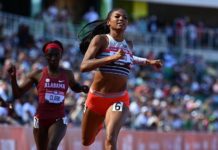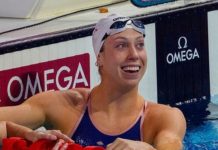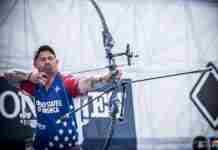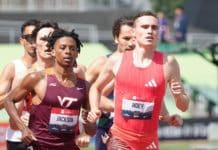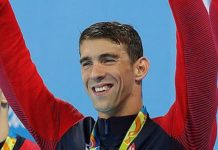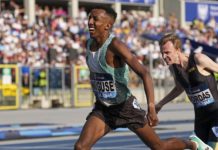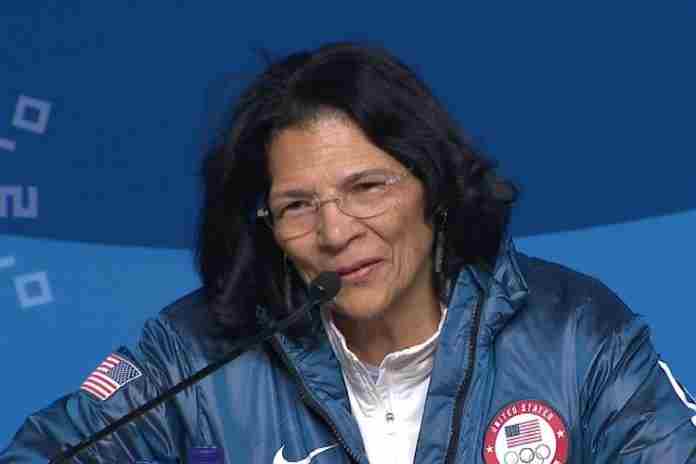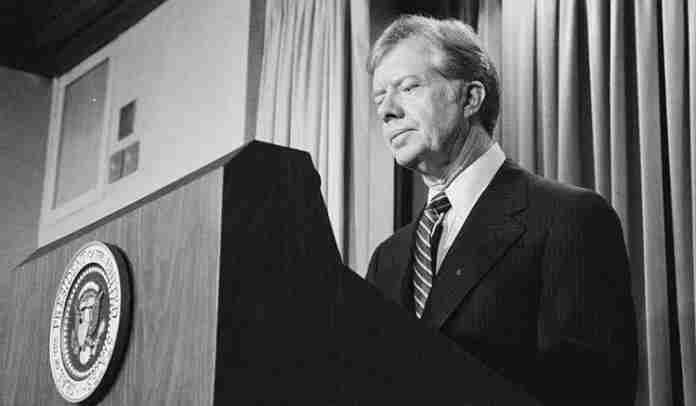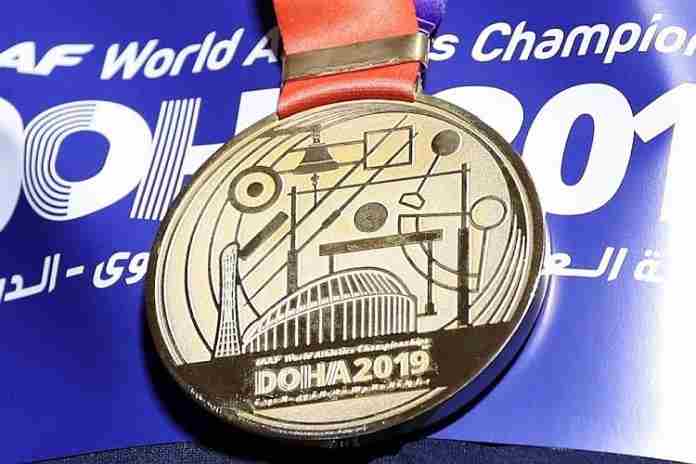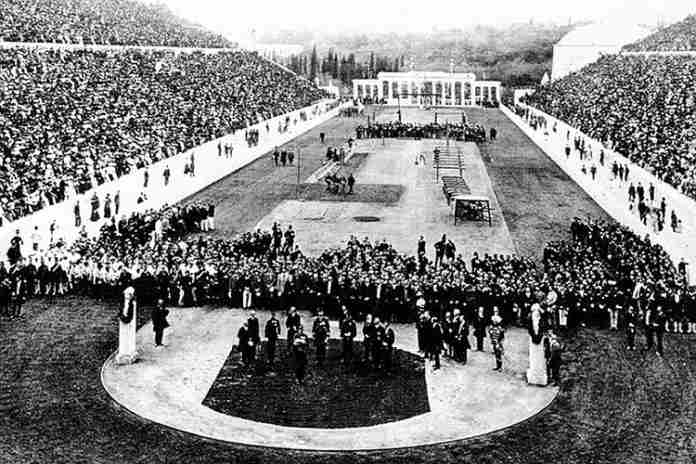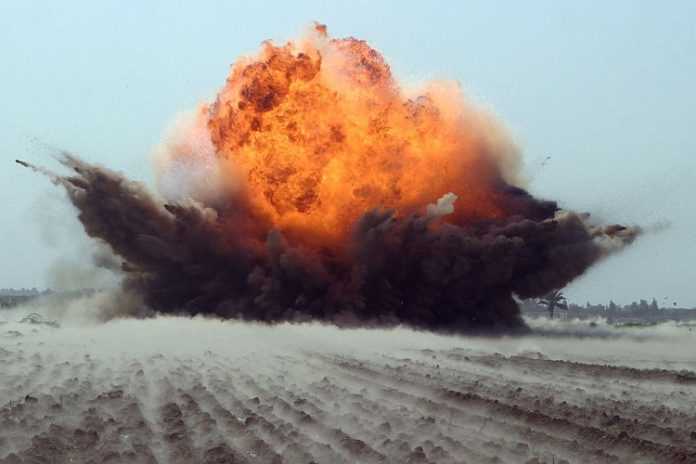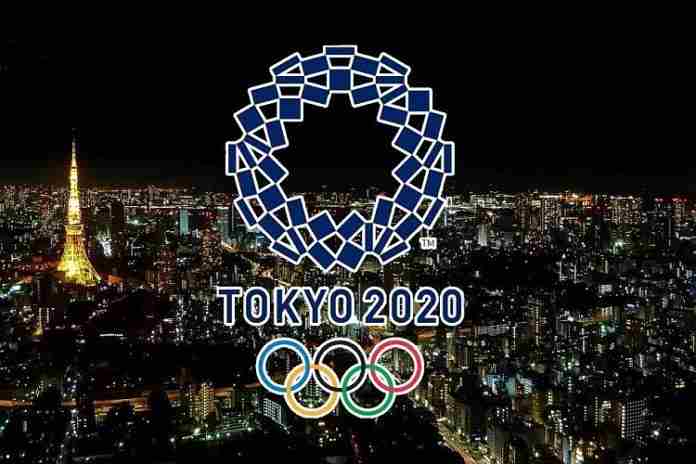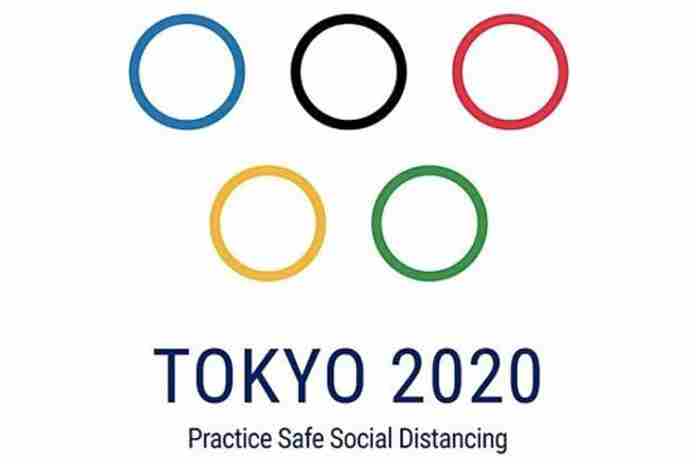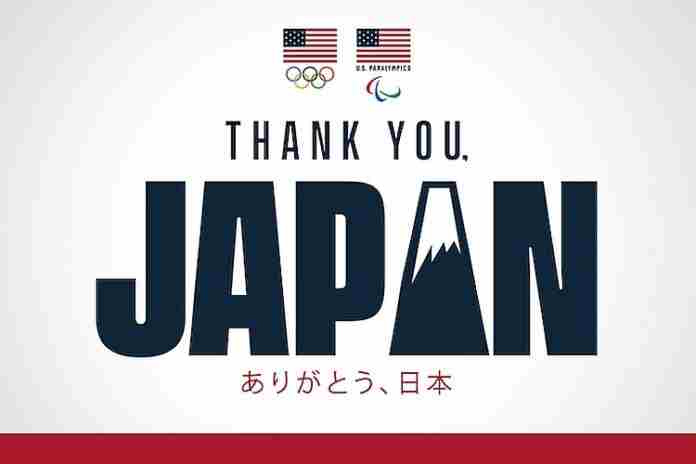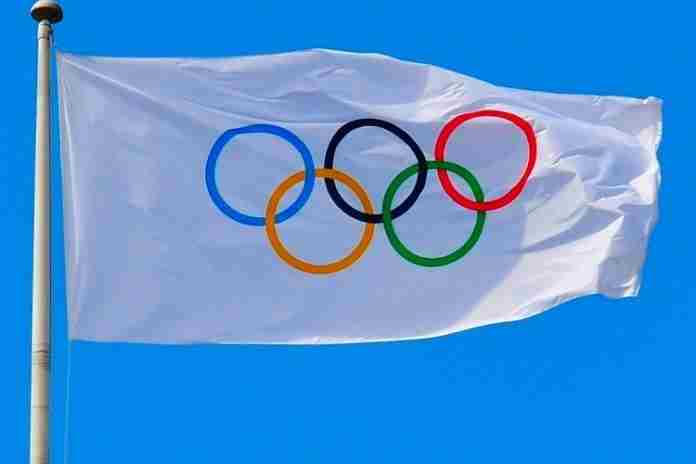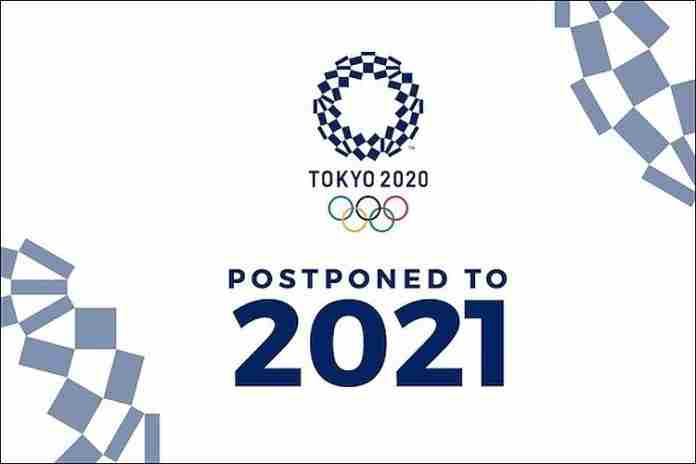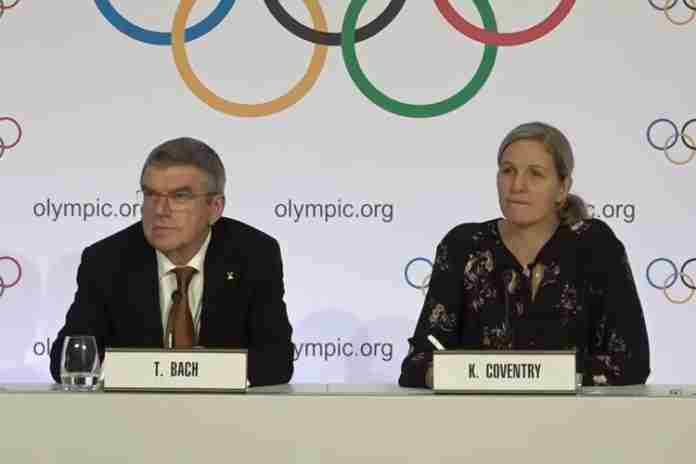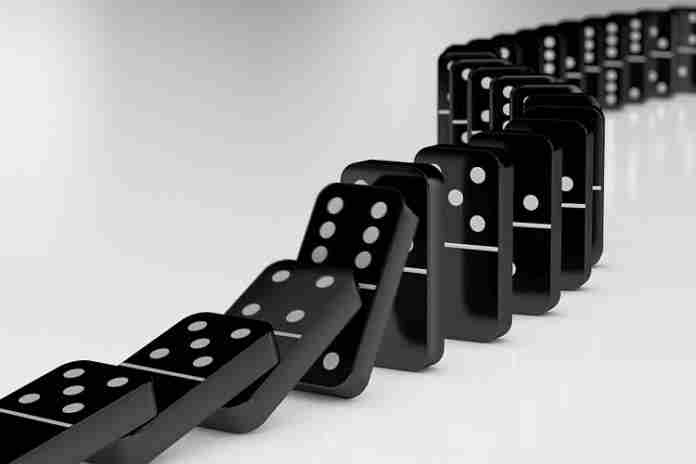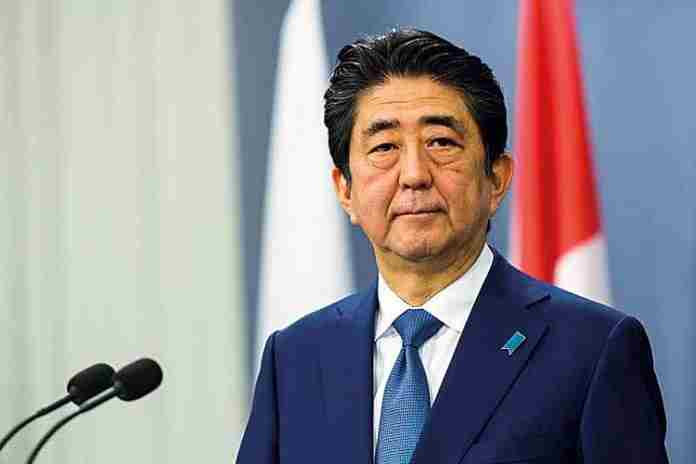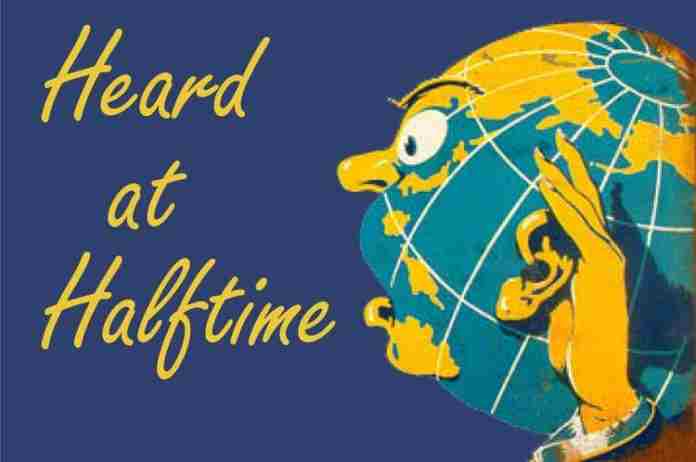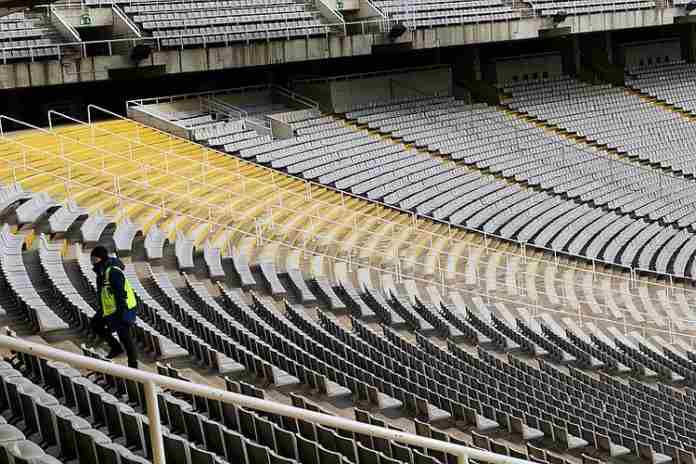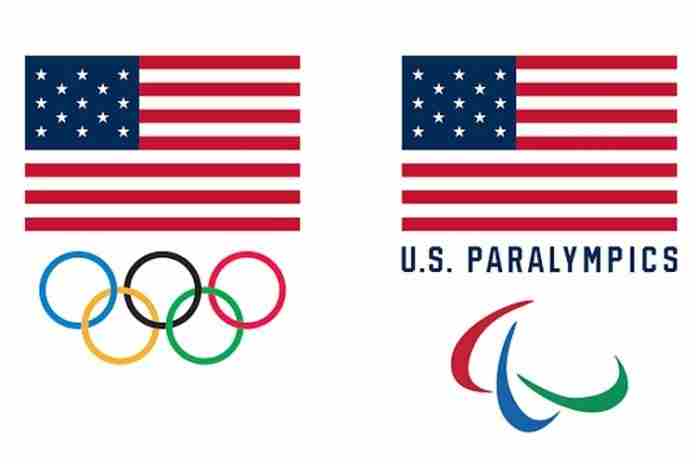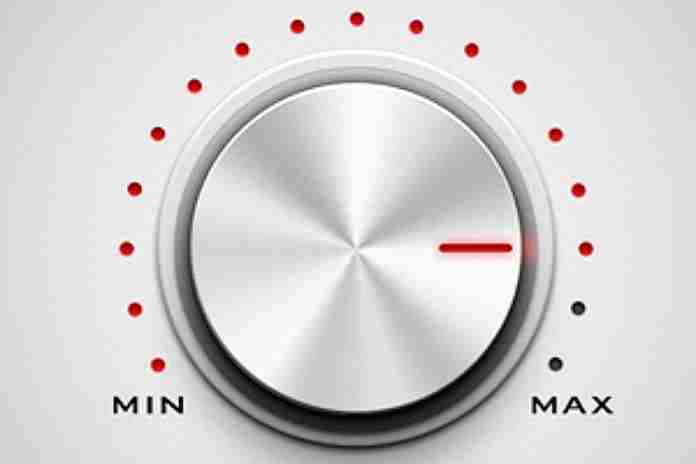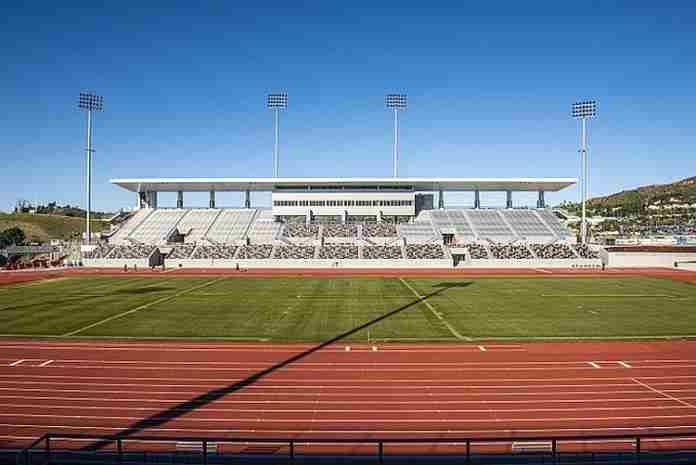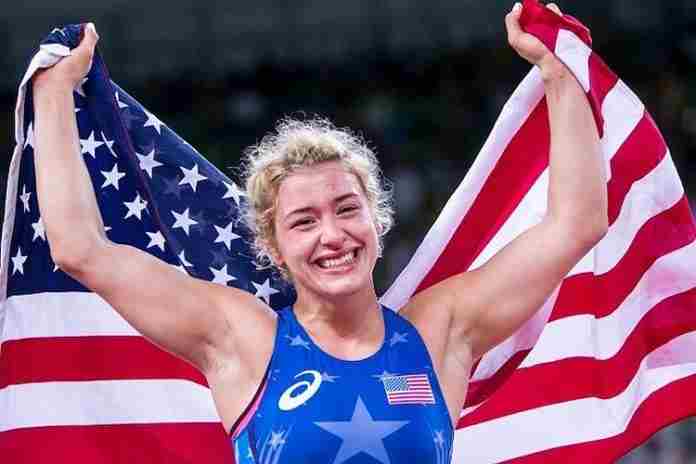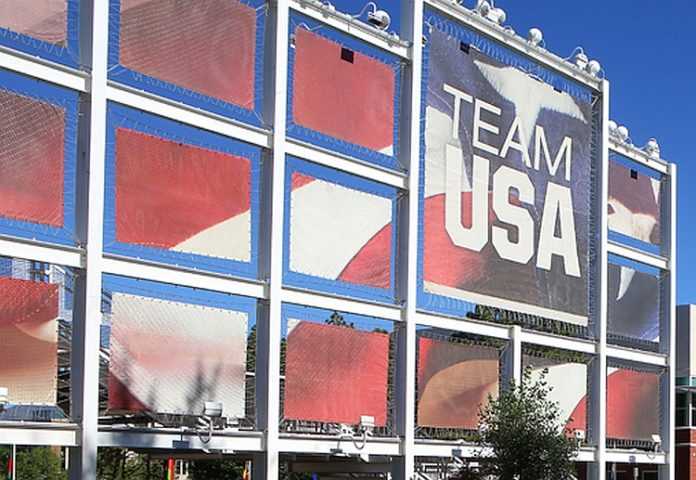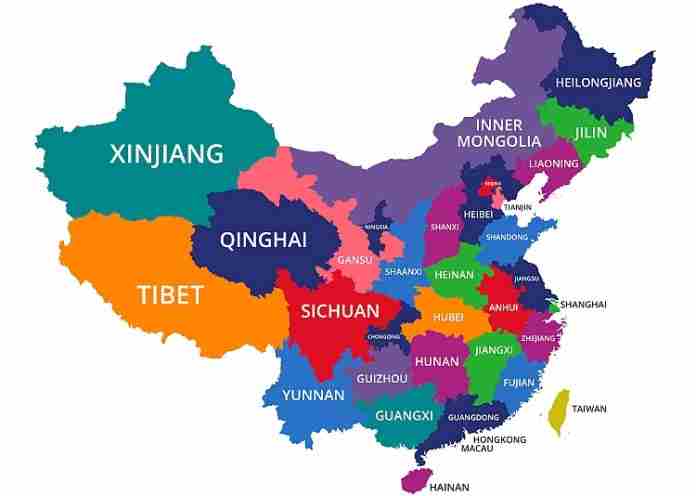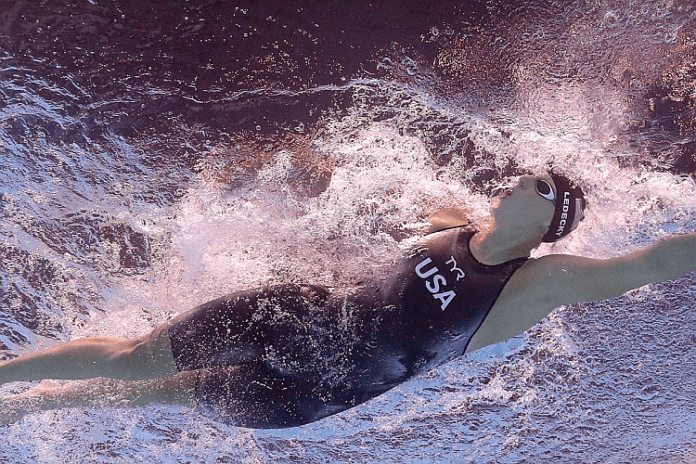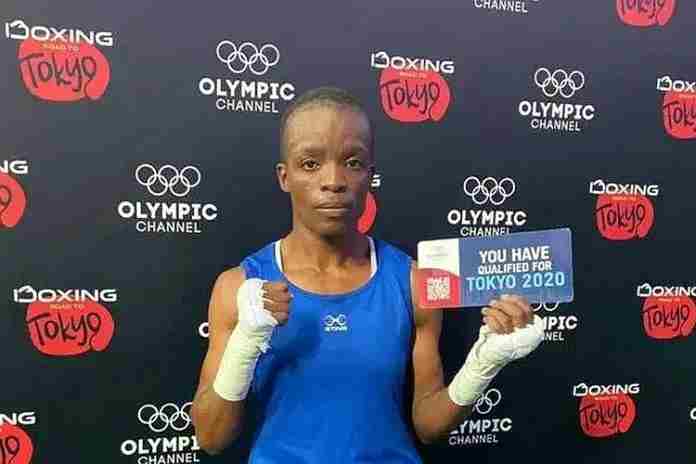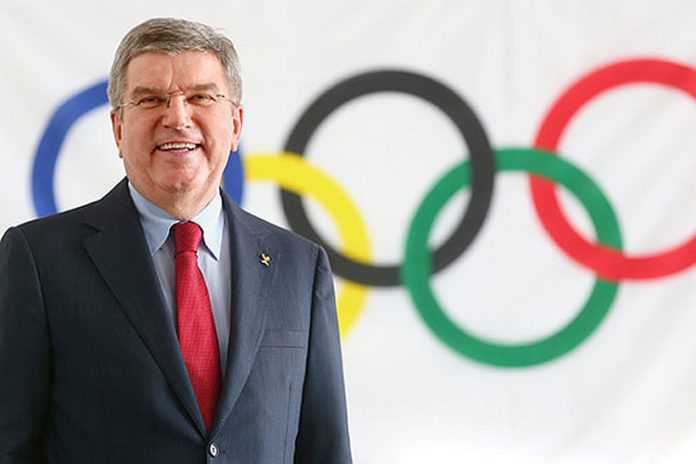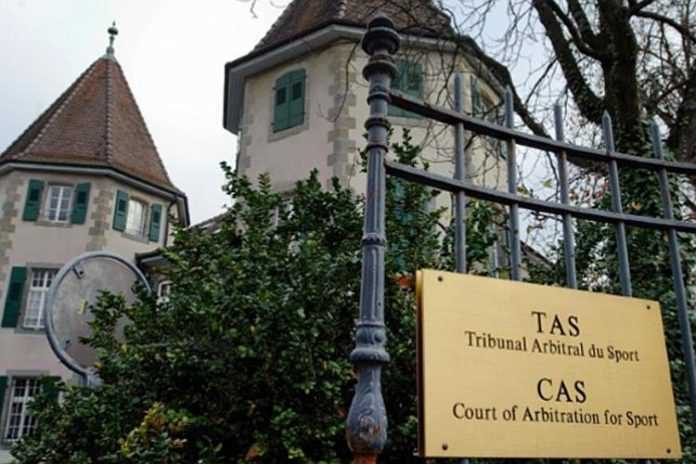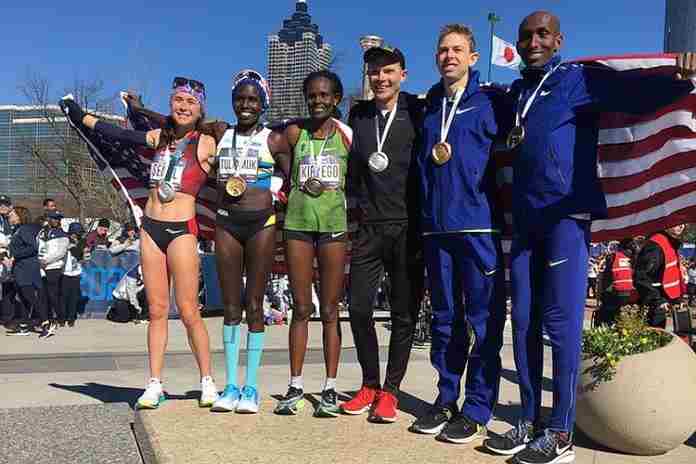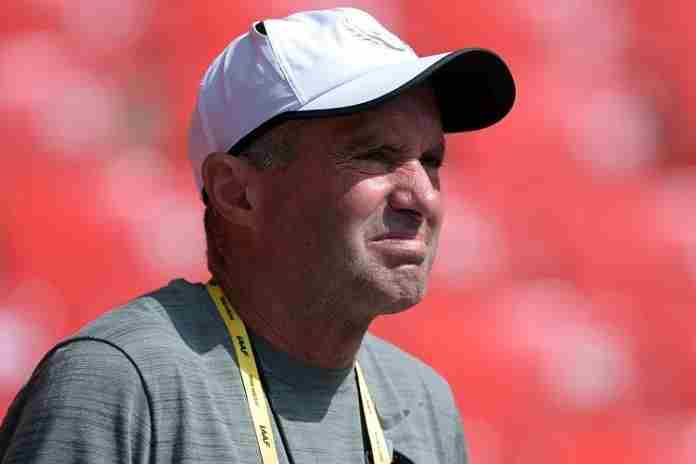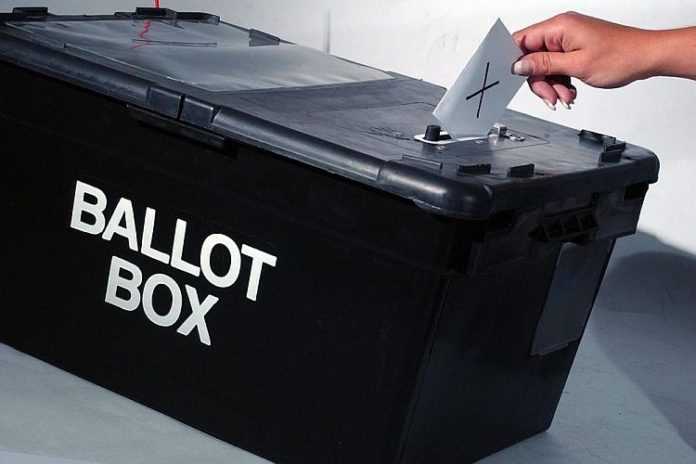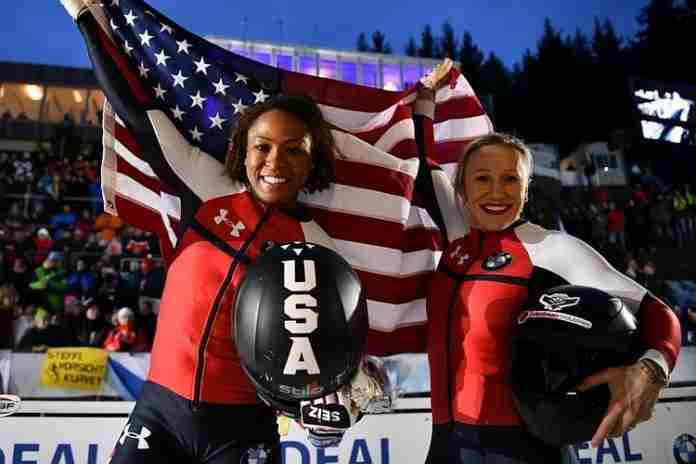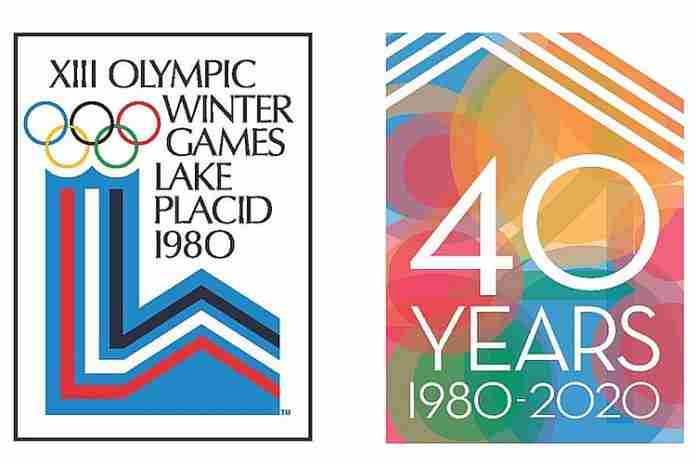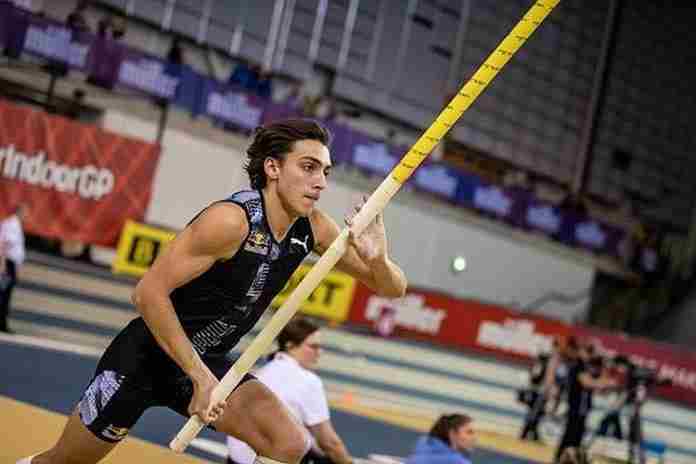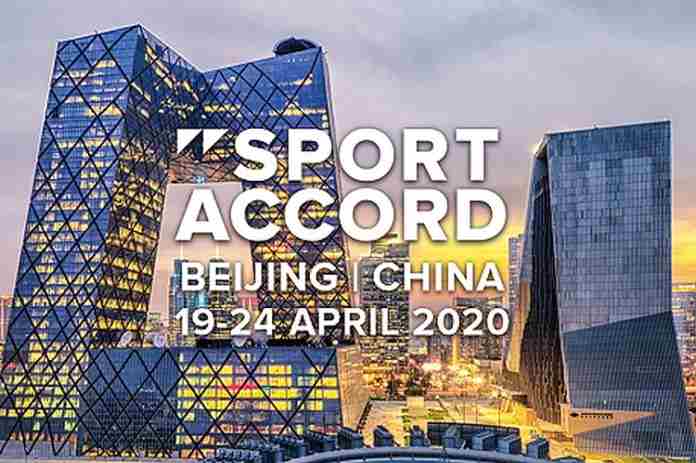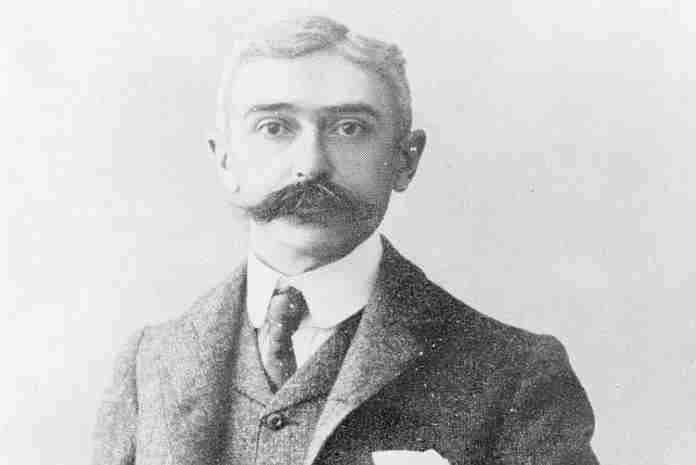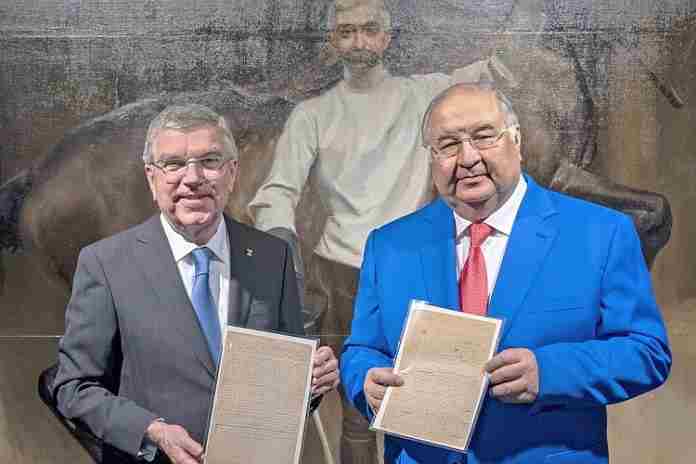Headline results of noteworthy competitions around the world:
● ALPINE SKIING ● The Coronavirus epidemic in China caused the scheduled men’s World Cup racing in Yanqing to be moved to Saalbach, Austria on Thursday and Friday. Germany’s Thomas Dressen won his second Downhill of the season, ahead of Swiss stars Beat Feuz and Mauro Caviezel. In the Super-G, Norway’s Alexander Aamodt Kilde collected his first World Cup win of the season, with Caviezel second and Dressen third. With the win, Aamodt Kilde took the overall lead with 982 points, ahead of teammate Henrik Kristoffersen (903) and Alexis Pinturault (FRA/882). Full results here.
The women’s racing in Kranjska Gora (SLO) was once again without American superstar Mikaela Shiffrin, in mourning for her father Jeffrey, who passed away on 2 February. In her absence. New Zealand’s 18-year-old Alice Robinson won her second Giant Slalom of the season, ahead of Slovenian star Petra Vlhova and Swiss Wendy Holdener and Meta Hrovat (tied for third). Vlhova came back to win the Slalom on Sunday, beating Holdener. Shiffrin still leads the overall standings with 1,225 points, with Federica Brignone second (ITA: 1,112) and Vlhova third (1,071). No word on when Shiffrin plans to return to competition. Full results here.
● ATHLETICS ● While our Lane One column highlighted the top performances of the weekend, especially a second world record in a week for vault star Mondo Duplantis of Sweden (and Louisiana), there was even more going on, including world-leading marks in 10 different events:
Men (5):
● 60 m: 6.48 and 6.37 ~ Christian Coleman (USA)
● 1,500 m: 3:36.22 ~ Bethwell Birgen (KEN)
● Pole Vault: 6.18 m (20-3 1/4) – World Record – Mondo Duplantis (SWE)
● Shot Put: 22.60 m (74-1 3/4) ~ Ryan Crouser (USA)
● Weight: 25.31 m (83-0), Conor McCullough (USA)
Women (5):
● 60 m: 7.04, Javianne Oliver (USA) and Mikiah Brisco (USA)
● 400 m: 51.32 ~ Wadeline Jonathas (USA)
● 1,000 m: 2:33.47, Laura Muir (GBR)
● Long Jump: 7.07 m (23-2 1/2) ~ Malaika Mihambo (GER)
● Shot Put: 18.99 m (62-3 3/4) ~ Chase Ealey (USA)
At the USATF Nationals in Albuquerque, there were a lot of defending champs who did well, including five straight wins for Ajee Wilson in the women’s 800 m and Vashti Cuningham in the women’s high jump.
Nick Christie won his third straight title in the 3,000 m Walk and distance star Shelby Houlihan won her fourth straight national title in the 3,000 m/two mile and a third 1,500/3,000 m double at a U.S. Indoors. Erik Kynard, returning from injury in 2019, won a sixth U.S. Indoor gold at 2.26 m (7-5).
There were three other defending champions who won again: Donald Scott (men’s triple jump) and Chase Ealey (women’s shot) and Janeah Stewart (women’s weight).
With the World Athletics World Indoor Championships postponed for a year due to the coronavirus outbreak in China, the U.S. season is essentially ended other than the NCAA Championships in March. The World Indoor Tour continues, perhaps with more heroics from Duplantis, this week in Lievin (FRA) on the 19th and Clermont-Ferrand (FRA) on the 23rd.
● BIATHLON ● The 10-day IBU World Championships in Antholz-Anterselva (ITA) is underway, running through this week and finishing next Sunday.
The opening events have already produced some surprises, not the least of which was a surprise silver medal for American Susan Dunklee in the women’s 7.5 km Sprint. She had won a Worlds silver at the 2017 Mass Start race and was a medal hopeful for PyeongChang in 2018, but didn’t qualify for the race; she also finished 66th in the Sprint.
After a 57th-place finish in the Sprint at the 2019 Worlds, she had no misses on the shooting range and had the lead for a while, finishing just 6.8 seconds behind winner Marte Olsbu Roiseland (NOR). It was Roiseland’s first individual gold at the Worlds. “I think there are 20 or 30 people, on any given day, who can be on the podium,” said Dunklee afterwards. “You never know when it’s going to be you so you always have to just believe and put yourself in contention.”
In the women’s 10 km Pursuit, Italian star Dorothea Wierer won her second career Worlds gold medal, finishing ahead of Germany’s Denise Herrmann (+9.5 seconds) and Roiseland (+15.8).
Roiseland won another gold in the Mixed Relay, as Norway cruised to the victory, with Italy second (Wierer included) and the Czech Republic was third.
In the men’s Sprint, Russia’s Alexander Loginov won his first Worlds gold, ahead of Frenchmen Quentin Filon Maillet and Martin Fourcade. However, France got a victory in the 12 km Pursuit from Emilien Jacquelin, in a lean at the line over Norwegian star Johannes Thingnes Boe, with Loginov third.
Full results and the schedule for this week are here.
● BOBSLED & SKELETON ● The IBSF World Cup wrapped up in Sigulda, Latvia, with the World Championships coming up this week in Altenberg, Germany.
Home fans cheered as Latvia’s Oskars Kibermanis (with Matiss Miknis) steamed home first in both of the two-man races, finishing ahead of Francesco Friedrich (GER) in race one and Swiss Simon Friedli in the second race. The seasonal title, however, went to Olympic champ Friedrich, who piled up 1,530 points to 1,478 for Kibermanis and 1,466 for Canadian star Justin Kripps.
Friedrich had previously won the four-man title in St. Moritz two weeks earlier.
The two-women race was won by Russians Nadezhda Sergeeva and Elena Mamedova, their first medal of the season. The seasonal title was won by German Stephanie Schneider (third in Sigulda) with 1,611 points, over Olympic champ Mariama Jamanka (GER: 1,573) and Canada’s Christine de Bruin (1,514). Kaillie Humphries, competing as an American for the first time this season, finished fourth with 1,484, but did not race in Sigulda, preferring to concentrate on the Worlds.
In Skeleton, home favorite Martins Dukurs won again, ahead of older brother Tomass Dukurs and Olympic champ Sung-Bin Yun (KOR). The win have Martins a record ninth career World Cup seasonal title with 1,665 points, with Alexander Tretiakov (RUS: 1,603) second and Yun (1,581) third.
Russian Elena Nikitina won the women’s Skeleton race for her third victory of the season, beating Swiss Marina Gilardoni and Janine Flock (AUT). German Jacqueline Loelling won the season’s crown with 1,632 points, ahead of Flock (1,614) and Nikitina (1,595). Full results here.
The women’s Monobob will be introduced as an Olympic event in 2022. In the racing at Park City, Utah on Sunday, Sleper Karlien (NED) was the winner in 1:56.63 for two runs, ahead of American Vanessa D’Arpino (1:58.99).
● CURLING ● Olympic champ John Shuster’s rink won his ninth national title at the USA Curling National Championships in Cheney, Washington, while Tabitha Peterson’s team took its first U.S. championship.
Shuster, Chris Plys, Matt Hamilton and John Landsteiner raced through the nine round-robin games, then won their semi, 8-2, over Rich Ruohonen and defeated Ruohenen’s rink again, 8-6, in the final. Shuster’s squad qualified as the U.S. rep for the Worlds in Scotland in March.
The women’s title went to Peterson, with Becca Hamilton, Tara Peterson and Aileen Geving. Peterson took over Nina Roth’s squad when Roth took time off for maternity, and won her second national title (she had previously been on Allison Pottinger’s team in 2012).
Peterson went 8-1 in the round-robin, then had to defeat three-time U.S. champ Jamie Sinclair in their first playoff game, 9-4 and then beat Sinclair again in the final, 7-5. Peterson’s rink advances to the Women’s World Championship in Canada in March.
● FREESTYLE SKIING ● The action was in Moscow (RUS) and Calgary (CAN) this week, with men’s and women’s Aerials in Russia an Halfpipe and Slopestyle in Canada.
Russian Pavel Krotov gave the home fans a thrill with a win in the men’s Aerials, just ahead of Swiss Noe Roth, who won his second straight World Cup silver and third medal in four events this season. Hanna Hruskova from Belarus won the women’s Aerials, beating Australia’s Laura Peel. Full results here.
In Calgary, the five-stage Halfpipe World Cup concluded, with Britain’s Gus Kenworthy – formerly of the U.S. – winning his first medal of the season, over Brandon Mackay (CAN) and Birk Irving of the U.S. It was Canada’s Noah Bowman who won the seasonal trophy with 365 points, edging Americans Aaron Blunck (360) and Irving (310).
China’s Eileen Gu – also formerly of the U.S. – won both the Halfpipe and Slopestyle events. She finished ahead of Canada’s Rachael Karker and Valeriya Demidova (RUS) in Halfpipe, but Demidova won the seasonal title at 345, with Karker second at 280.
Gu won the Slopestyle event with Mathilde Gremaud (SUI) second and Megan Oldham (CAN) third. Swiss Sarah Hoefflin continues to lead the standings with 192 points.
The men’s Slopestyle winner was Swiss star Andri Ragettli, who won for the second straight event, this time against Americans Colby Stevenson (for the second event in a row) and Nicholas Goepper. Ragettli leads Stevenson in the seasonal race by just 265-220 with one more event to go. Full results here.
● GYMNASTICS ● The FIG Trampoline World Cup in Baku (AZE) was a showcase for China, which won four of the six individual Trampoline medals. Lei Gao won the men’s event with 61.585 points, ahead of Ivan Litvinovich (BLR: 61.360) and Dong Dong (CHN: 60.260). The women’s event was a 1-2 for China’s Xueying Zhu (55.810) and Lingling Liu (54.945).
The Tumbling events were won by Kaden Brown (USA/men) and Viktoriia Danilenko (RUS/women). Full results here.
● LUGE ● Russia dominated the 49th FIL World Championships, held on the 2014 Olympic Winter Games track in Sochi (RUS). Full results here.
Former World Cup champ Roman Repilov (RUS) won both the men’s Singles and the men’s Sprint, with Austrians Jonas Mueller second in Singles and David Gleirscher runner-up in the Sprint.
Similarly, Ekaterina Katnikova won the women’s Singles and Sprint, with Julia Taubitz (GER) and Victoria Demchenko (RUS) winning the other Singles medals, and Tatiana Ivanova (RUS) and Eliza Cauce (LAT) taking the other Sprint medals. Katnikova’s win was a shocker, as he had finished 25th at the 2017 Worlds and 15th last season; her best World Cup finish this season was fourth in Altenberg (GER).
Germans Toni Eggert and Sascha Benecken won their third straight world title in the men’s Doubles, beating Russians Alexander Denisyev and Vladislav Antonov (RUS) and German teammates Tobias Wendl and Tobias Arlt. Denisyev and Antonov won the Doubles Sprint.
The Mixed Doubles title went to Germany (Taubitz, Johannes Ludwig, Eggert & Benecken), with Latvia second and the American team of Summer Britcher, Tucker West, Chris Mazdzer and Jayson Terdiman third.
● NORDIC SKIING ● A fairly limited Cross Country World Cup schedule this week in Ostersund (SWE), but with the same results: Norway, Norway, Norway, Norway.
The sweep started with the amazing Therese Johaug winning both the 10 km Freestyle and 10 km Classical Mass Start races, giving her 13 wins in the 25 events held and victories in 13 of the 15 distance races. She led a Norwegian sweep in both events, with Heidi Weng second and Ingvild Flugstad Ostberg third both times.
Norwegians Sjur Roethe (15 km Freestyle) and Pal Golberg (15 km Classical Pursuit) won the men’s races. The Freestyle was another Norwegian sweep, with Simen Hegsted Krueger and Finn Hagen Krogh second and third; seasonal leader Alexander Bolshunov (RUS) finished second in the Pursuit. Full results here.
In Ski Jumping, the men were sailing off the giant 235 m hill in Tauplitz (AUT), and Poland’s Pyotr Zyla and home favorite (and twice World Champion) Stefan Kraft were the winners on Saturday and Sunday. Kraft finished third on Saturday and maintains the seasonal lead, 1,273-1,135, over German Karl Geiger. Slovenia’s Timi Zajc also won medals in both events, with a silver on Saturday and bronze on Sunday. Full results here.
● SAILING ● Three major world championships were held off Geelong, Australia and finished on Sunday, in the 49er, 49 FX and Nacra 17 classes, all with Olympic qualifying implications for some countries.
In the men’s 49er class, New Zealand stars Peter Burling and Blair Tuke ran away with the title, scoring a net of 38.0 points, well clear of Spain’s Diego Botin and Iago Lopez Marra (53.0) and Erik Heil and Thomas Poessel (GER/60.0). It’s a record sixth world title for Burling and Tuke, who are the reigning Olympic champions … and confirmed that they will be favored once again in Tokyo.
The women’s 49er FX racing was a tight win for Spain’s Tamara Echegoyen and Paula Barcelo, who scored a 42.0-52.0 win against Charlotte Dobson and Saskia Tidey (GBR), primarily on the strength of a fifth-place finish in the medal round, vs. 10th for the Brits. Americans Stephanie Roble and Maggie Shea finished third (84.0).
Britain’s John Gimson and Anna Burnet won the Nacra 17 class, winning five of the 12 races – including the medal race – to finish with 67.0 points, just one better than Australia’s Worlds silver winners Jason Outteridge and Haylee Outteridge (68.0), with Rio Olympic silver winners Jason Waterhouse and Lisa Darmanin (AUS: 77.0) third. Full results are here.
● SHORT TRACK ● The ISU Short Track World Cup concluded in Dordrecht (NED), with two seasonal titles each for Korea’s Ji-Won Park and Dutch skater Suzanne Schulting.
In the men’s events, June-Seo Lee (KOR) won the 500 m but Hungary’s Shaolin Sandor Liu had already wrapped up the seasonal title with 50,096 points, ahead of Dajing Wu (CHN: 32,171). The two 1,000 m events were won by Dae-Yeon Kim (KOR) and J-W Park (KOR) and Park took the 2020 title with 49,200 points, easily clear of China’s Tianyu Han (29,752).
Park also won the men’s 1,500 m in Dordrecht and claimed the seasonal diadem over J-S Lee by 42,621-37.642.
Lara van Ruijven of The Netherlands won her first 500 m title of the season in front of the home fans, but Canada’s Kim Boutin was perfect in her five races and won the seasonal crowd with 50,000 points to 38.736 for Italian Martina Valcepina (38,736). The two 1,000 m races went to Yu-Bin Lee (KOR) and teammate Ji-Yoo Kim, with Dutch star Schulting winning the seasonal title with 39,355 points to 31,120 for Yu-Tong Han (KOR).
Schulting won the 1,500 m race and the season’s title, scoring 38,000 to 30,621 for J-Y Kim. Full results are here.
● SNOWBOARD ● The World Cup Halfpipe season concluded in Calgary with a win for Japan’s Ruka Hirano, who finished ahead of Australian star Scotty James and Swiss Patrick Burgener. James won three of the five events and took the seasonal title with 3,800 points, ahead of Japan’s Yuto Totsuka (3,400) and Hirano (2.800).
The women’s Halfpipe was another win for China’s Xuetong Cai, her second in a row and fourth medal in the five events on the season. Japan’s Mitsuki Ono won silver and China’s Jiayu Liu won her third straight bronze (she also won a medal in all five events!). Cai won the seasonal title over Liu, 3,600-3,000.
Also in Calgary, the men’s Slopestyle saw the first-ever World Cup win for New Zealand’s Tiam Collins, ahead of Japan’s Ruki Tobita. The home crowd was happy to see Laurie Blouin win the women’s Slopestyle, ahead of Silje Norendal (NOR) and British star Katie Ormerod, who has won a medal in all four events thus far. Full results here.
● SPEED SKATING ● The ISU World Single Distance Championships was held at the famed Utah Olympic Oval in Kearns, Utah, and what is likely the world’s fastest track yielded six world records during the four days of competition.
In the men’s events, Russia’s Pavel Kulizhnikov won his fourth and fifth World Single Distance golds in the 500 m (over teammate Ruslan Murashov) and 1,000 m with a world record skate of 1:05.69, ahead of Kjeld Nuis of The Netherlands. Nuis came back to win the 1,500 m for his third career individual-event gold. American Joey Mantia won the 1,500 m bronze, his third career Worlds medal.
The distance races went to Canadians Ted-Jan Bloemen (5,000 m: 6:04.37) and Graeme Fish, who won the 10,000 m with a world record of 12:3.86 to beat Bloemen (12:45.01). Jorrit Bergsma (NED) won the Mass Start with 60 points.
The Dutch men won the Team Pursuit (3:34.68 world record) and the Team Sprint.
Japan’s Nao Kodaira won her fourth career Worlds medal in the women’s 500 m, and her second gold, with a 36.69-36.74 win over Russian Angelina Golikova. Dutch stars Jutta Leerdam and Ireen Wust won the 1,000 and 1,500 m; for the amazing Wust, it was her 14th World Single-Distance gold and 30th career medal!
Martina Sabilkova, the 32-year-old Czech distance star, might be even more amazing. She won the 3,000 m and was second in the 5,000 m to Natalya Voronina (RUS), who needed a world record of 6:39.02 to beat her! For Sabilkova, she now has 16 World Single-Distance golds and five silvers, from 2007-20. All of these medals have come at either 3,000 m or 5,000 m.
Canada’s Ivanie Blondin won the Mass Start race with 60 points and world records were set in both relays. Japan won the Team Pursuit in 2:50.76 to beat The Netherlands, and the Dutch took the Team Sprint in 1:24.02 to finish ahead of Russia (1:24.50).
The Netherlands won the overall medal title with 14, just ahead of Russia (12), with Canada third (9). Full results here.
● SWIMMING ● The first leg of the 2020 FINA Marathon (10 km) World Series was held off Doha (QAT), with France’s Olympic bronze winner Marc-Antoine Olivier winning the men’s race impressively in 1:49:46.6, some 12.6 second clear of Germany’s Rob Muffels.
The women’s title went to German Sophie Beck, 23, who won her first international title in a final sprint in 1:56:41.1. That was just 0.2 seconds ahead of defending champ Ana Marcela Cunha (BRA) and Rio Olympic champ Sharon van Rouwendaal of The Netherlands. More details here.
The swimmers are off now until May, with the second leg in The Seychelles.








